Back to School Resources
Building Student Resilience Through Shared Resources
As we gear up for the new school year, we understand the importance of mental health for students, parents, and educators. That’s why we are adding to our comprehensive youth mental health resource library this back to school season. Navigating the challenges of academics, social dynamics, and personal growth can be overwhelming but, together, we can build a resilient and thriving community. Our resources aim to support educators, guide parents, and empower students on their mental health journey during the school year and beyond.
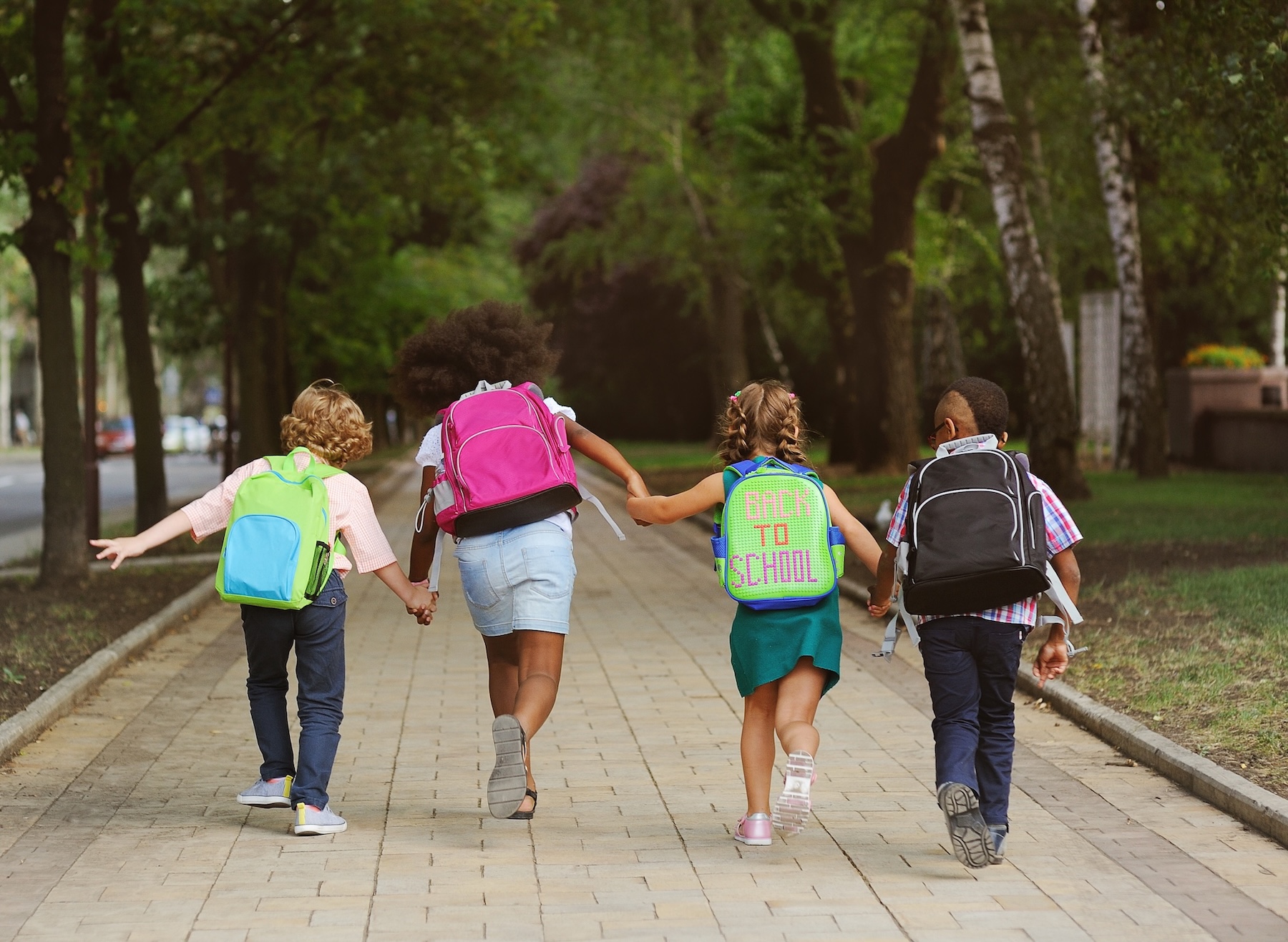

Find local support
Connect with a NAMI chapter near you
Select your state to find a local NAMI affiliate. The page will redirect to the affiliate's page when a state is selected.

In need of help or support?
If you are struggling with your mental health, there are a variety of ways to connect with NAMI. Get immediate support by calling, texting or chatting online.
Parents and Caregivers
Discover useful insights and resources to foster your child’s mental health throughout the school year.
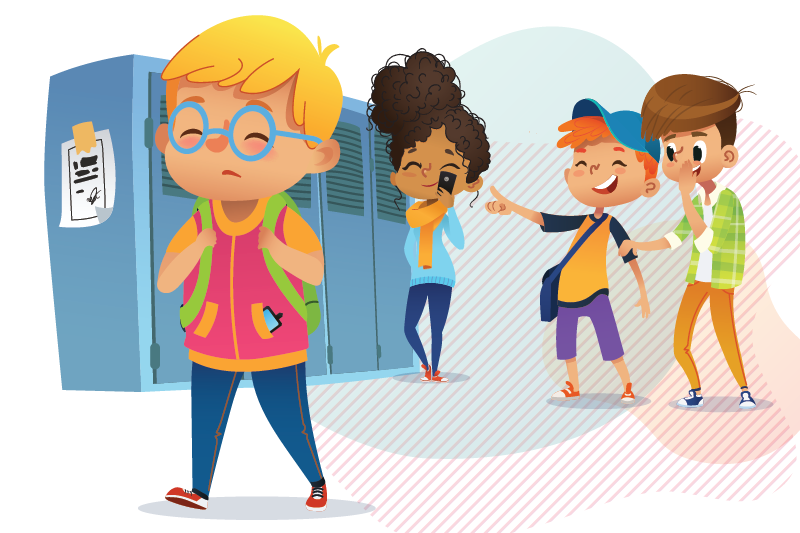
Bullying Warning Signs
Parents and caregivers need to pay close attention to their child’s behavior if they believe they’re involved in bullying. Use this resource to learn the warning signs and get tips about starting a conversation with children about bullying.

Señales de alerta del acoso escolar
Utilice este recurso para conocer las señales de alerta y obtener consejos sobre cómo iniciar una conversación con sus hijos sobre el acoso escolar.

Suicide Warning Signs
Over the last decade, teens have indicated increased feelings of suicidality. It’s important for parents to know the warning signs, learn how to ask the question, and how to navigate a mental health crisis.

Señales de alerta de suicidio
Durante la última década, los adolescentes han mostrado un aumento en sus sentimientos de suicidio. Es importante que los padres conozcan las señales de alerta, aprendan a preguntar y a gestionar una crisis de salud mental.
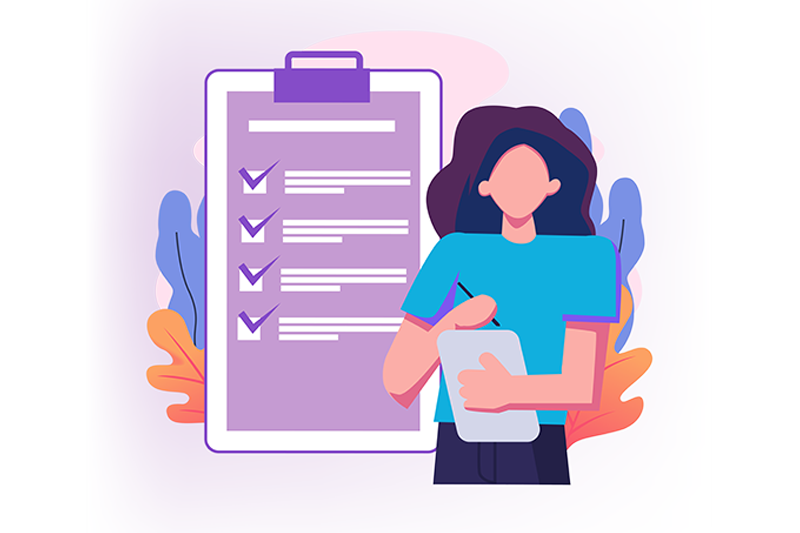
Crisis and Relapse Plan
Before a crisis begins, it’s useful to have a plan. Document your emergency resources, write down the steps you’ll take, and explore how to safely address a relapse.

Plan para Crisis y Recaídas
Una página que hace que los primeros pasos para pedir ayuda sean menos abrumadores.
10 Questions on a Tuesday
Use these questions to talk with your child about ways to support their mental health. Learn how they like to de-stress, stay connected to their growing hobbies and interests, and understand what makes them anxious with this resource.
10 Preguntas para un Martes
Utiliza estas preguntas para hablar con tu hijo sobre maneras de cuidar su salud mental. Descubre cómo le gusta desestresarse, cómo se mantiene conectado con sus aficiones e intereses en desarrollo y cómo entiende qué le causa ansiedad con este recurso.
A Week of Wellness
The activities in this resource can help you connect with your child every day. Use these ideas to build wellness time into a daily routine and build on meaningful conversations.
Una Semana de Bienestar
Las actividades de este recurso pueden ayudarte a conectar con tu hijo/a a diario. Usa estas ideas para integrar el tiempo de bienestar en tu rutina diaria y fomentar conversaciones significativas.
The Three C’s for Parents and Guardians
This resource helps you and your child feel supported as you talk about mental health and wellness, identify support, and connect at home. Use the Three C’s to get curious, get concrete, and stay compassionate.
Las Tres C para Padres y Tutores
Este recurso les ayuda a usted y a su hijo a sentirse apoyados mientras hablan sobre salud mental y bienestar, buscan apoyo y conectan en casa. Usen las Tres C para despertar su curiosidad, ser concretos y mantener la compasión.
A Guide for Working Caregivers During the Back to School Transition
Managing changing schedules and routines for a new school year can be overwhelming, especially when managing a mental health condition. Get tips for managing stress, dealing with change, and more from this resource.
Guía para cuidadores que trabajan durante la transición de regreso a clases
Gestionar los cambios de horarios y rutinas para un nuevo año escolar puede ser abrumador, especialmente si se trata de una afección de salud mental. Obtenga consejos para manejar el estrés, afrontar los cambios y más en este recurso.
Educators
Access vital tools to identify signs of distress and cultivate a compassionate learning environment. Empower your students emotionally with useful knowledge and skills.

Classroom Mental Health Contract
Breaking stigma surrounding mental health can happen in the classroom. With this resource, educators can help their students talk openly and frequently about mental health and well-being.

Contrato de Salud Mental en el Aula
Romper el estigma en torno a la salud mental es posible en el aula. Con este recurso, los educadores pueden ayudar a sus estudiantes a hablar abierta y frecuentemente sobre salud mental y bienestar.

Mental Wellness Moments for Educators
This resource has daily suggestions for how to bring mental health wellness into the classroom. From Monday Moods to Fridays for Self-Care, these suggestions can help students build healthy habits for their mental well-being.

Momentos de Bienestar Mental para Educadores
Este recurso ofrece sugerencias diarias para promover el bienestar mental en el aula. Desde “Lunes de Estado de Ánimo” hasta “Viernes de Autocuidado”, estas sugerencias pueden ayudar a los estudiantes a desarrollar hábitos saludables para su bienestar mental.
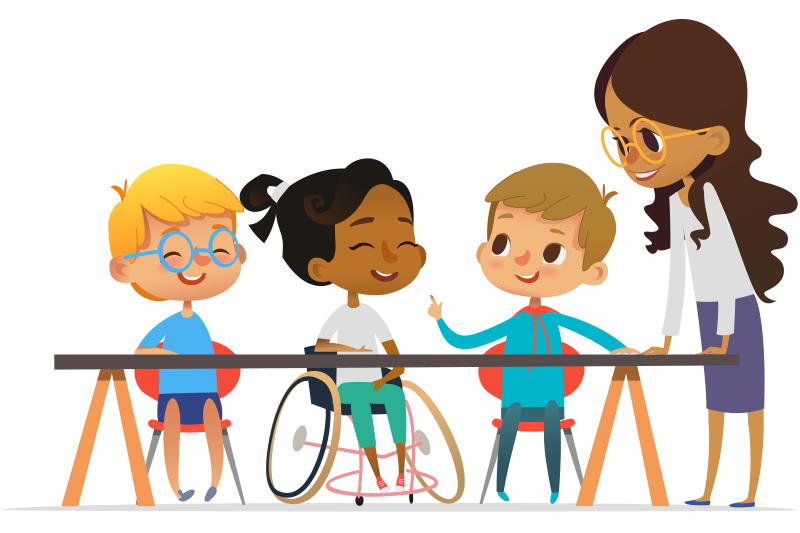
The Three C’s Educators
This resource is meant to help educators and their students feel comfortable talking about mental health and wellness. Using these three C’s, educators can connect with students empathetically.

Las tres C para educadores
Este recurso está diseñado para ayudar a los educadores y a sus estudiantes a sentirse cómodos al hablar sobre salud mental y bienestar. Con estas tres C, los educadores pueden conectar con los estudiantes de forma empática.
Five Questions for School Staff to Ask When Preparing for an Active Shooter Drill
When preparing for an active shooter drill, it’s important to use trauma-informed approaches. Use this resource to help your students understand what’s happening and how to “debrief” students after the drill.
Cinco preguntas que el personal escolar debe plantear al prepararse para un simulacro de tirador activo
Utilice este recurso para ayudar a sus estudiantes a comprender qué está sucediendo y cómo informarles después del simulacro.
Mindfulness Activities
Developing a state of being aware and present in a moment is called mindfulness. Teaching students how to center themselves and reengage with the world is a crucial skill. Use this resource for strategies to teach students in various age groups about mindfulness.
Actividades de Mindfulness
Desarrollar un estado de consciencia y presencia en el momento se denomina mindfulness. Enseñar a los estudiantes a centrarse y a reconectarse con el mundo es una habilidad crucial. Utilice este recurso para encontrar estrategias que les permitan enseñar mindfulness a estudiantes de diferentes edades.
Three Keys for a Successful Back to School Transition
As teachers are preparing their classrooms, it’s important to understand how being trauma-informed can help create a safe and supportive environment for all students.
Tres claves para una transición exitosa al regreso a clases
Mientras los docentes preparan sus aulas, es importante comprender cómo la información sobre el trauma puede ayudar a crear un entorno seguro y de apoyo para todos los estudiantes.
Compassion Fatigue and Burnout
The demands of teaching can be draining. It’s important to take care of yourself, too! This new resource for the 2025 school year shares signs of compassion fatigue and burnout, tips for self-care, and affirmations.
Fatiga por compasión y agotamiento
Las exigencias de la docencia pueden ser agotadoras. ¡Es importante cuidarse también! Este nuevo recurso para el año escolar 2025 comparte señales de fatiga por compasión y agotamiento, consejos para el autocuidado y afirmaciones.
Students
Discover useful insights and resources to foster your child’s mental health throughout the school year.

Setting Boundaries Guide
It’s important to set healthy boundaries to take care of our well-being. Students can learn about different types of boundaries, how to set them, and ways to communicate boundaries to others.

Guía para establecer límites
Es importante establecer límites saludables para cuidar nuestro bienestar. Los estudiantes pueden aprender sobre los diferentes tipos de límites, cómo establecerlos y cómo comunicarlos a los demás.
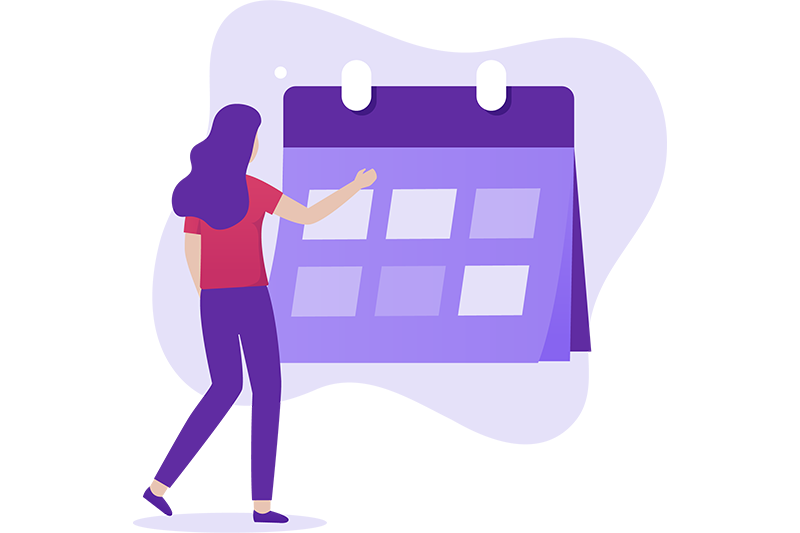
Commitment Planner
Living a full life comes with many different commitments ranging from family and school to self-care and extracurricular activities. This planner helps students prioritize commitments to prevent burnout and mental exhaustion.

Planificador de Compromisos
Vivir una vida plena implica diversos compromisos, desde la familia y la escuela hasta el cuidado personal y las actividades extracurriculares. Este planificador ayuda a los estudiantes a priorizar sus compromisos para prevenir el agotamiento y el agotamiento mental.

NAMI On Campus At-A-Glance
For students who want to raise mental health awareness at their school, NAMI On Campus is a great opportunity. These are student-led, student-run organizations for high schools and colleges. Find out how to get started with this resource.

Resumen de NAMI en el Campus
NAMI en el Campus son organizaciones dirigidas y gestionadas por estudiantes de preparatoria y universidad. Descubre cómo empezar con este recurso.
Social Media: Helpful Tips
Connecting with friends, family, and community can be a great way to use social media. However, we know it’s important to protect our mental health online too. Find out how to engage safely with tips from this guide.
Redes Sociales: Consejos Útiles
Conectar con amigos, familiares y la comunidad puede ser una excelente manera de usar las redes sociales. Sin embargo, sabemos que también es importante proteger nuestra salud mental en línea. Descubre cómo interactuar de forma segura con los consejos de esta guía.
Time Management For Students
Balancing school, work, and personal time can be challenging, even for adults! Students can use the tips in this resource to build time management skills.
Gestión del Tiempo para Estudiantes
Conciliar el tiempo entre la escuela, el trabajo y la vida personal puede ser un desafío, ¡incluso para los adultos! Los estudiantes pueden usar los consejos de este recurso para desarrollar habilidades de gestión del tiempo.
Finding a Trusted Adult
Asking for help can feel scary, embarrassing, and hard. This resource can help students choose an adult to confide in and get the help they need.
Encontrar un Adulto de Confianza
Pedir ayuda puede ser aterrador, vergonzoso y difícil. Este recurso puede ayudar a los estudiantes a elegir un adulto en quien confiar y obtener la ayuda que necesitan.
Getting the Right Start
For students experiencing a mental health challenge, it can be hard to get help early. This resource helps students consider steps they could take to find help and share what they’re going through.
Un Buen Comienzo
Para los estudiantes que experimentan problemas de salud mental, puede ser difícil obtener ayuda temprana. Este recurso ayuda a los estudiantes a considerar los pasos que podrían seguir para buscar ayuda y compartir su experiencia.
How to Help A Friend
Sometimes it’s hard to tell if our friends are feeling down or if there’s a deeper struggle. There are ten common warning signs that students should know. Use this resource to help students learn the warning signs and understand the next steps they could take to help a friend.
Cómo Ayudar a un Amigo
A veces es difícil saber si nuestros amigos se sienten deprimidos o si tienen una lucha más profunda. Hay diez señales de alerta comunes que los estudiantes deben conocer. Utilice este recurso para ayudarlos a aprender las señales de alerta y comprender los pasos a seguir para ayudar a un amigo.
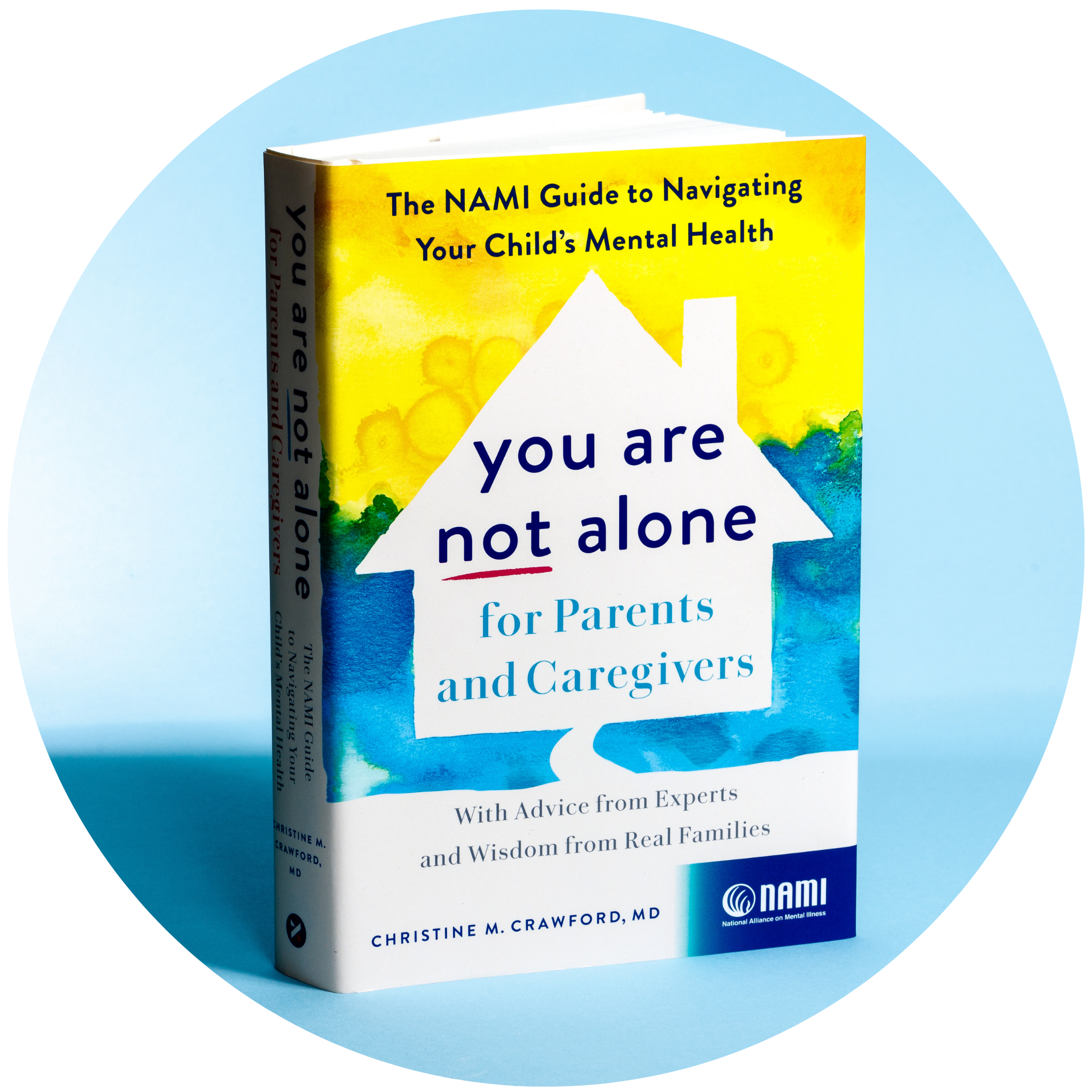
You Are Not Alone for Parents and Caregivers
Child psychiatrist and NAMI’s Associate Medical Director Dr. Christine M. Crawford provides a comprehensive, compassionate, and practical resource for anyone concerned about the mental health of young people from preschool to high school.

We want to hear your story
Tell us how mental illness has affected your life. What has been challenging? What has been helpful to you?
